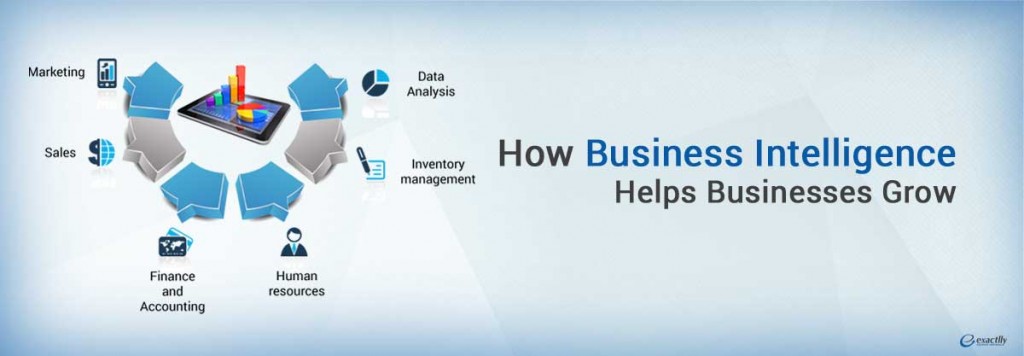How Business Intelligence Helps Businesses Grow

 With the growing complexity in today’s businesses, it is important to have business intelligence software in the company. BI allows integration of raw data scattered across the company into structured and meaningful information. Information in a structured format will help the management to gain insights and identify trends. A business should always be prepared for a change and adapt to the changing business environment.
With the growing complexity in today’s businesses, it is important to have business intelligence software in the company. BI allows integration of raw data scattered across the company into structured and meaningful information. Information in a structured format will help the management to gain insights and identify trends. A business should always be prepared for a change and adapt to the changing business environment.
Primary areas affected by incorporating business intelligence
- Marketing
There are different marketing strategies adopted by businesses to market their product. Whether it is online advertisement, offline advertisement through magazine, outdoors, TV, radio or email marketing and content marketing on social media and blogs, it is important to measure the effectiveness of the campaign. Every campaign involves money and the campaigns which are generating results and are cost effective for the business are the ones that score brownie points. Business intelligence not only measures the campaign effectiveness but also helps the business owner to choose a suitable campaign. - Sales
Sales are the revenue generating areas of the business. There are different stages in the sales process like identifying a target customer, pitching the product or service to the customer, sending reminders or revisits and closing sales. Every stage must be thoroughly analyzed before moving to the next one. It helps in understanding the customer better and closing the sales. Business intelligence software keeps a close watch on customer interaction. It helps you to identify key customers, improve the sales pitch and increase the customer lifetime value. - Finance and accounting

Financial health of the company determines whether the business is sustainable or not. A poor financial health is indicative of wrong business decisions and affects the business severely. It is also reflective of poor financial management practices. Business intelligence keeps a track of financial ratios like liquidity measurement ratio, profitability indicator ratio, debt ratios, operating performance ratio, cash flow indicator ratio and investment valuation ratio. Accordingly, corrective actions can be taken if there is deviation from normal behavior. - Human resources
Business intelligence software is capable to identify optimal number of human resource required for completing a particular process. Employee turnover rate is monitored and employee retention measures can be suggested. Compensation given to every employee is tracked to keep costs under control. - Inventory management
Too much inventory is a liability for the business whether it is raw material inventory or finished goods inventory. Business intelligence makes sure that optimum inventory levels are maintained all the time. It also takes into account cost fluctuation in raw material before purchase order is given. It helps in saving cost for the company. - Data Analysis

As a lot of data is generated on a regular basis, business intelligence allows you to compile tons of data in a structured format. Such data can be easily analyzed with the help of various analytical tools. It can compute regression, correlation and other statistical parameters. Reports generated can be interpreted and corrective measures can be suggested.
Looking forward
It is only possible if there are tools like BI that keeps the businesses alert all the time. There is huge amount of data generated across different departments on a daily basis. The ability to transform that data into information to find out flaws, inefficient processes and suggest new ways of improvement is the key agenda of having BI on board. It gives the company a competitive edge and empowers the employees with interesting set of data. This helps them in making informed business decisions.






